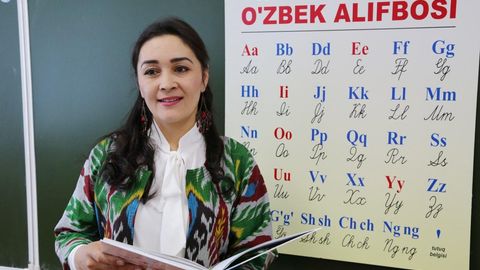EBRD supports expansion of domestic pharmaceutical production in Uzbekistan
17:08 / 27.02.2026
Uzbekistan’s Tax Committee studies Russia’s experience in monitoring influencer income
15:00 / 27.02.2026
EU launches 2026–2028 program to support farm cooperatives in Uzbekistan
14:00 / 27.02.2026
Uzbekistan reports $2bn pharmaceutical turnover in 2025, up 18% from 2024
13:00 / 27.02.2026
Uzbekistan builds 50-hectare residential complex in Surkhandarya to support regional development
12:00 / 27.02.2026
Recommendations
Menu
Good news:
Tags
Grow your business with us
Advertise on Daryo.uzIndividual approach and exclusive materials
Ad-free site readingSubscribe
25 000 sum per month






Comments
To leave a comment, first